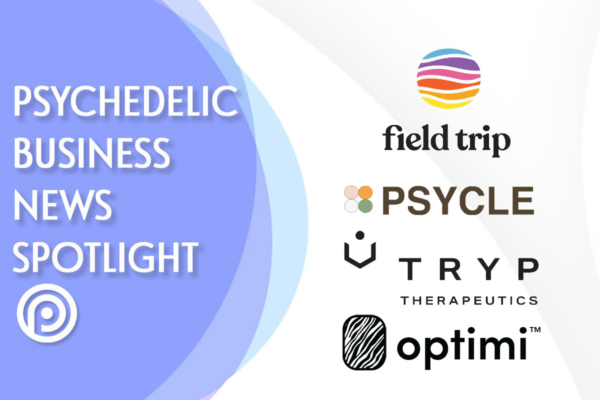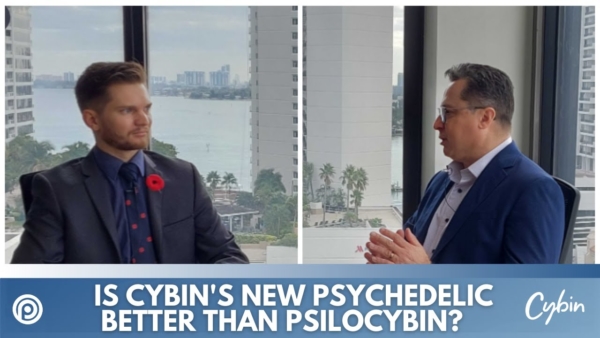
On December 12, MAPS Public Benefit Corporation announced their submission of New Drug Application (NDA) to the FDA for their MDMA-assisted therapy for PTSD program, marking a historic moment for scientists and researchers exploring more efficacious mental health treatments.
The Multidisciplinary Association for Psychedelic Studies (MAPS) has always been one of the organizations tirelessly knocking down the foundational bricks of the War on Drugs.
However, it wasn’t until May 2021 that the organization truly started making waves and attracting media attention by publishing outstanding clinical trial results that go against the public opinion of MDMA. Published in Nature Medicine, the organization’s first Phase 3 double-blind, placebo-controlled trial of MDMA-assisted psychotherapy for the treatment of PTSD demonstrated significant success. According to the data collected by the researchers, 67% of participants no longer qualified to be diagnosed with PTSD and 88% of ‘patients’ demonstrated a clinically significant reduction in post-traumatic stress disorder symptoms. Some common adverse effects were present, such as muscle tightness, decreased appetite, nausea, sweating, pupil dilation, and feeling cold. However, no serious negative side effects were reported.
In September 2023, MAPS reproduced their results the second phase of its Phase 3 trial. The study, which was also published in Nature Medicine, presented supporting evidence with 71.2% of participants in the MDMA-AT group no longer reporting PTSD symptoms, compared to 47.6% in the placebo group.
Now, after a twenty year-long commitment to clinical research, the MAPS (PBC) has submitted its New Drug Application (NDA) to the FDA. According to MAPS PBC’s CEO, Amy Emerson, “If approved, MDMA-assisted therapy would be the first psychedelic-assisted therapy” which she hopes “will drive additional investment into new research in mental health.”
When to Expect MDMA Therapy Approval
According to Rick Doblin, the founder and president of MAPS, MDMA, currently classified as a Schedule 1 drug, is on track to possibly be approved by the FDA as early as 2024.
Seeing that 2024 is rapidly approaching, it is difficult to predict exactly when the FDA will make its decision. However, MAPS was generous enough to provide the media with an estimate. In its press release, the organization stated that the FDA will have 60 days “to determine whether the NDA will be accepted for review and whether it will be a priority or standard review (six months or ten months, respectively).”
Although there may be some obstacles that may add a few more months to MDMA-AT’s expected approval timeline, such as the need for a Risk Evaluation and Mitigation (REMS), the FDA’s designation of MDMA as a “breakthrough therapy” will certainly expedite MAPS’ application.
According to Dustin Robinson, Esq., CPA, the managing principal of psychedelics venture capital firm Iter Investments, founding partner of psychedelics and cannabis law firm Mr. Cannabis Law, and the co-founder of psychedelics non-profit Mr. Psychedelic Law, FDA approval can be expected around August 2024.
Robinson’s venture capital firm is an investor in MAPS and has worked closely with the organization, and his law firm represents many clinics and therapists that are planning to use MDMA once approved.
As a starting point, Robinson said, “MAPS PBC New Drug Application submission to the FDA is a tremendous milestone for the psychedelic industry. It is the first NDA submission for psychedelic therapy and brings us one step closer to a paradigm shift in mental health. My expected timeline is FDA approval around August 2024; DEA approval by end of 2024; first patient dosed by mid-2025; private insurance coverage by the end of 2025; and MDMA-Assisted Therapy at scale in 2026. With MAPS PBC Phase 3 trial results demonstrating a significant improvement over current medicines for PTSD, I expect MDMA-Assisted Therapy to be a game-changer for veterans and others suffering from PTSD.”
Is there any possibility that MDMA-AT won’t be approved next year? It seems highly unlikely. MAPS PBC’s has already initiated a recruitment process for approximately ten new positions, including a Head of Market Access, which will be responsible “to maximize access to MDMA-AT by securing optimal coverage, provider reimbursement, and distribution’, alongside other duties.” This move speaks volumes about the organization’s optimism regarding the smooth sailing of the review process from this point onward.
What to Expect Post-Approval?
An FDA approval of MDMA-AT for PTSD will stimulate a few interesting developments in the mental health field, including legal treatment access, a growing demand for trained therapists and support staff, new training programs, updated regulatory guidelines, and potential insurance coverage.
Those seeking MDMA therapy access will likely be able to obtain this treatment through specialized treatment centers and clinics. It is also safe to expect that ketamine clinics – at least those able to expand their services and staff training to include trained therapists and healthcare professionals – may add MDMA-AT treatments to their current offerings. In fact, Payton Nyquvest, Founder and CEO of Numinus, a psychedelic medicine company that supports MAPS research that also offers ketamine treatments through its clinics, stated in a press release, “With its established clinic network and qualified professionals, along with our training pathway, Numinus is ready to offer MDMA-assisted therapy pending regulatory approvals.”
Meanwhile, the psychedelics industry will see inevitable growth, creating new employment opportunities for psychotherapists seeking to widen their horizons. Needless to say, the demand for trained therapists and healthcare providers will grow alongside the demand for comprehensive training programs and certification processes.
Like with any new approved treatment, the FDA will likely establish regulatory guidelines for the use of MDMA-AT, including treatment protocols, safety measures, and dosage recommendations.
However, the question that has everyone on the edge of their seat is whether insurance coverage will be provided to those wanting to explore MDMA-AT. The answer is: most likely. Unfortunately, it may not be available right away, and it may be contingent on the insurance provider.
With treatment rounds expected to cost between $13,000 and $15,000, it is safe to say that the industry will see a concerted effort lobbying for insurance companies to include MDMA-AT in the covered treatment options, aiming to lessen the cost burden on eligible patients.
Based on a paper published in the Journal of managed care & specialty pharmacy, it’s worth noting that approximately 90% of the novel therapeutic drugs were covered by at least one Medicare prescription plan within the first year post-FDA approval. This is encouraging news for patients who cannot afford to put a few months of rent’s worth to cover treatment costs.
Furthermore, precedent cases also offer some hope that insurance coverage will be available in the future. For instance, taking into account that Esketamine, a ketamine-derivative also known as Spravato which was granted FDA approval in 2019, is covered under some insurance plans indicates that MDMA-assisted therapy will follow the same route. However, it is worth noting that coverage may be subject to the individual’s insurance provider and may vary between plans.
Third-party administrators of health insurance plans offering psychedelic healthcare as a workplace benefit will also likely jump on board. One such example is Enthea. In 2022, the start-up partnered with Dr. Bronner’s natural soap brand, making the company the first employer to offer ketamine-assisted psychotherapy (KAT) to its existing health insurance plans. This year, during the reMind Psychedelics Business conference, Sherry Rais, the Co-Founder & CEO of Enthea told Psychedelic Spotlight that their client list now includes approximately 50 firms interested in adding KAT to their employees’ health plans. As part of its mission “to make psychedelic-assisted therapies affordable, accessible, and equitable” through its Provider Network, Enthea also plans on adding MDMA-assisted therapy and psilocybin-assisted therapy once they become approved by the FDA.
In any case, the approval of MDMA-assisted therapy for PTSD will have a positive societal and economic impact in the U.S. Post-traumatic stress disorder affects approximately 13 million Americans each year and it’s debilitating symptoms affect nearly all areas of a person’s life. PTSD is also linked to coexisting conditions, such as anxiety, depression and substance use disorder. Meanwhile, the economic burden carried by this condition is estimated to exceed $200 billion per year, according to a paper published in the Journal of Clinical Psychiatry, and current treatment options lack efficacy.
According to research published in the Annals of General Psychiatry, MDMA enhances patients’ capacity to process trauma during psychotherapy because the entactogen decreases defensiveness and anxiety, improves mood, and induces relaxation while increasing insight and memory. An FDA approval of MDMA-AT for PTSD will not only offer a promising new approach to treating individuals suffering from PTSD, but it will also set a precedent for the regulatory frameworks surrounding other psychedelic treatments, ultimately facilitating their approval process in the future.
References:
Mitchell JM, Bogenschutz M, Lilienstein A, et al. MDMA-assisted therapy for severe PTSD: a randomized, double-blind, placebo-controlled phase 3 study. Nat Med 609 2021;27:1025–33
VA National Center for PTSD. US Department of Veterans Affairs. Accessed November 29, 2023. https://www.ptsd.va.gov/understand/common/common_adults.asp
Davis LL. The economic burden of posttraumatic stress disorder in the United States from a societal perspective. J Clin Psychiatry. (2022) Apr 25;83(3):21m14116. doi: 10.4088/JCP.21m14116.





